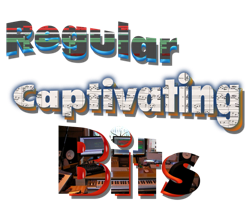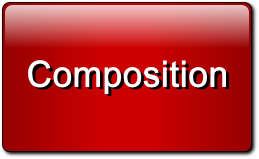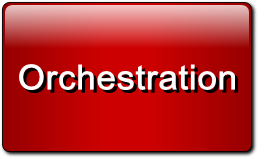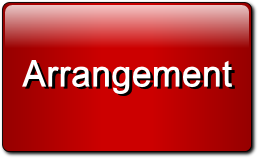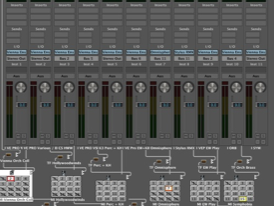
Over the years I have received countless emails asking for advice, so I decided to create this tutorial section where you can find all minds of articles I have written. This section is expanded whenever a new article is posted.
Please also keep a close look at my blog, where I post software reviews and other things.
Private Lessons
I also offer private lessons in several areas of music and technology. If you are interested in orchestration, composition and music theory, you will find my current tuition types at the bottom of the page. Please contact me if you are interested and we will work something out.Regular Captivating Bits
Tips, Tricks and Hints on Music for Media
In the Regular Captivating Bits section you will find all sorts of tips and tricks on all aspects of music for media. There are tips about composing, orchestration, arrangements as well as tips for the business side of things, software and hardware tips, and much more.It basically is an extension of what I teach in my lessons. The page is updated very frequently, so check back soon! If you subscribe to the RSS feed you can stay up to date on all new posts.
Vienna Ensemble Pro Tutorial
I use Vienna Ensemble Pro for hosting my orchestral template on a MacPro and a Slave PC. I've written a comprehensive tutorial about how to set up an orchestral template with VE Pro and Logic Pro, which you can find on the VSL website as well as at www.orchestraltemplates.com. I cover setting up both applications, which hardware to get, how to create busses and how to make automation in Logic easy.
The tutorial is continually worked on based on user feedback, so if you have comments, drop me a line!
The tutorial is continually worked on based on user feedback, so if you have comments, drop me a line!
Tutorial articles at macProVideo.com
I regularly write articles about different topics at the macProVideo.com blog. Below you'll find a tabbed list of all the topics I have covered so far. If you have a suggestion for a topic I should cover in a future article, drop me a line!
Backups - Know where to find things
Some applications store their files in obscure directories, here I’ll show you where to find them.
Making OSX reinstallations easier
Reinstalling your OS can be a pain in the backside - but it doesn’t need to!
Some applications store their files in obscure directories, here I’ll show you where to find them.
Making OSX reinstallations easier
Reinstalling your OS can be a pain in the backside - but it doesn’t need to!
Using the iTunes Grouping tag
The Grouping tag in iTunes can help you organising tracks belonging together one way or another and it is great for classical music.
iTunes tags for Sorting
The special sorting tags in iTunes make it easy to keep huge collections organised.
Storing sensitive material in iTunes
When you want to store your precious work in iTunes, there are some methods to make things as secure as possible.
The Grouping tag in iTunes can help you organising tracks belonging together one way or another and it is great for classical music.
iTunes tags for Sorting
The special sorting tags in iTunes make it easy to keep huge collections organised.
Storing sensitive material in iTunes
When you want to store your precious work in iTunes, there are some methods to make things as secure as possible.
Screensets in Logic Pro - Part 1
Screensets are one of the most powerful timesavers in Logic, here’s why
Screensets in Logic Pro - Part 2
The second part of my two-part Screensets tutorial.
Screensets are one of the most powerful timesavers in Logic, here’s why
Screensets in Logic Pro - Part 2
The second part of my two-part Screensets tutorial.
5 Workflow tips for Sibelius
I’ll show you five quick tips to improve your Sibelius workflow.
Exporting mockups from different notation software
Learn how to use different notation apllications to quickly create great-sounding mockups of your scores.
Free Rhythm in Sibelius
Notating free rhythm and plainsong is easy in Sibelius, this article will tell you how.
I’ll show you five quick tips to improve your Sibelius workflow.
Exporting mockups from different notation software
Learn how to use different notation apllications to quickly create great-sounding mockups of your scores.
Free Rhythm in Sibelius
Notating free rhythm and plainsong is easy in Sibelius, this article will tell you how.
Setting up technology - Personal Help
Building, setting up and maintaining a composing rig is a challenging work. Since releasing my VE Pro tutorial, I have had a lot of composers entrust me with assisting them in building their orchestral templates. If you have trouble setting up your Slave machines or have just general questions on how to build your studio - or simply want all the hard work done for you - get in touch with me. I will help you to build an orchestral template, setup virtual instruments and create custom Kontakt and Vienna Instruments multis. I've helped lots of people in the past and I am sure I can help you, too!Sibelius Control for iPad
With the aid of the great app Custom Keypad I have created a layout for controlling Sibelius from your iPad. Head over to the Sibelius Control for iPad site and download the keypad layout!Lessons
Very often I get emails with people asking me "How can I learn to write music?". The answer is: By studying hard and by listening to as much music as possible. But without a teacher this can be quite hard; for most people to get their creative juices flowing they need a bit of outside help.
I offer lessons in composition, orchestration, arrangement as well as music theory for everyone interested. Have a look below at what awaits you.
I offer lessons in composition, orchestration, arrangement as well as music theory for everyone interested. Have a look below at what awaits you.
Writing original music
How to conceive and compose a score
Writing for instruments
How to effectively write for ensembles
Creating arrangements
How to adapt existing pieces
What we will do
In my lessons I focus on the three core disciplines shown above: composition, orchestration and arrangement. All three of these are based on music theory on the one hand and technical skills on the other. Depending on your level of knowledge in these fields, I will compile a custom course for you suited to what you want to learn.
This should give you an overview of what I focus on in my lessons. Everything will be adjusted to your wishes and your needs with an emphasis on certain topics.
Music Theory
A good grasp of some theory is essential. It is like a toolbox that you can use to build stuff. I will touch on melody, harmony, counterpoint, form and - a bit of my speciality - figured bass. I come from a background in church music and have found that knowledge of figured bass helps to understand how music works. Besides, it allows you to make accompaniments in no time. Together we will build a set of theory tools that will allow you to express your creativity in the best way possible. The idea is to make the mechanical process of composing a subconscious thing you never need to consciously think about.Composition
I will teach you how to effectively write music in a variety of styles, from baroque to twelve-tone music (no, you don't _need_ to do this if you don't want to) to make you ready for whatever project you may encounter. We will also deal with composition techniques, sketching, writing for unfamiliar ensembles, writing for ethnic instruments and many more. A good part of the time will be spent with looking at scores and analysing what the composer has done to achieve a certain result.Orchestration
We will look at instrument colours, how to write for real instruments, especially concerning playing limitations, tonal range, special articulations, and so on. You know, these wind people actually need to breathe from time to time! Again, the focus lies on practical examples. from classic to pop, but with a focus on contemporary film orchestration. We will also look at what is different when writing for sampled instruments or for a real ensemble. This topic also includes special music notation, how to write a score, score layout, how to prepare parts and how to make them easily readable for musicians and many more things.Arrangement
We will take given pieces and arrange them in totally different styles. Ever taken a power metal "shredfest" and made a nice bluegrass piece out of it? We will do that! Arrangement also heavily touches on dealing with musicians, especially if they are from other musical backgrounds. You will not only learn how to arrange tracks, but also how to explain to people your visions. This intersects with the orchestration and composition parts as concerns dealing with directors, producers and the likes.Technical Skills
One may like it or not, but no one can deny the tremendous changes technology has brought to the market. Today a composer needs to have his technical skills at their best all the time. Therefore, writing music with the aid of a sequencer, notation software for engraving and other tools is an important part of my lessons. I usually use Logic Pro and Sibelius, but that is not set in stone. We will deal with programming samples, making great sounding renditions of scores from MIDI files and will have a look at creating sequencer templates.This should give you an overview of what I focus on in my lessons. Everything will be adjusted to your wishes and your needs with an emphasis on certain topics.
What you need
You should have a basic understanding of music theory, i.e. know what a scale is, know a bit about notation and have at least written a few pieces so you have an inkling of what you want to learn.
On the technical side, a reasonably fast computer with a sequencer and some basic music tools would be great, as well as a notation software. Sibelius is preferred as I use it myself and can therefore assist you better, but Finale, Notation, Capella and the likes should be fine, too.
You will get a bit of homework after each lesson, so you will also need some free time to do this homework :)
On the technical side, a reasonably fast computer with a sequencer and some basic music tools would be great, as well as a notation software. Sibelius is preferred as I use it myself and can therefore assist you better, but Finale, Notation, Capella and the likes should be fine, too.
You will get a bit of homework after each lesson, so you will also need some free time to do this homework :)
How it works
I do lessons either in person or (more and more common) via Skype or iChat. We will do screen sharing, so you can see my screen and see what I do as well as hear my voice. One lesson usually is 60 minutes, but that is negotiable. Lesson times usually are in the evenings, but that, too, is subject to arrangement.
Lessons are held in English or German, with course material usually in English, but most of the time music is international :)
If you are interested, drop me a line and we can get in touch. If you have some material to show me, send me a link to it. This helps me to see how I can plan your lessons so you get the most out of them!
Lessons are held in English or German, with course material usually in English, but most of the time music is international :)
If you are interested, drop me a line and we can get in touch. If you have some material to show me, send me a link to it. This helps me to see how I can plan your lessons so you get the most out of them!
Learning Sibelius
Over the years I have taught a lot of people the ways of using Sibelius for all things notation. Whether you are new to the application and want to learn the basics or whether you are a seasoned user and want to learn to master Sibelius even better, I will gladly show you. I also offer a "Learn Sibelius in 1 hour" introduction, which should get you going with your first scores. Get in touch and we will work something out!Featured Track
Bio
Born in Frankfurt/Germany, Tobias from his studio works as a composer, orchestrator and arranger for media projects as well as an educator in the field of music technology, notation and music theory. Read more...
